Read Part 1/3 here
Read Part 2/3 here
Dr. D.N. Samant (Ghatkopar): Honorable Speaker, I rise to support the amendment proposed by the Leader of the Opposition, Shri Dhulap. There has been considerable discussion on this amendment, and from that, it is evident that democracy and socialism are the pride of this House. I wish to tell the honorable members that this House’s prestige and democracy are here to resolve the issues and difficulties of the people of the state. However, Honorable Speaker, when a member of the district council (who is from your honorable party) comes here to voice the concerns of twenty thousand people from his region, and he raises slogans of "Naik Saheb," we must think deeply about this.
Today, people’s issues and emotions are discussed in this House. Just today, there was a discussion about the Konkan boat issue. Around 2 million people travel from Ratnagiri and Kolaba, and the Minister says that we have informed the Central Government. If these problems are not resolved, then it will only be empty talk, and people’s livelihood issues won’t be resolved in this way. Therefore, the representatives whom the people have sent here should resolve their basic needs.
Deputy Speaker: You can only speak on the resolution currently being discussed in the House.
Dr. D.N. Samant: Honorable Speaker, that individual took this step because the problems of ordinary people from his region have not been resolved in the past 20 years. Therefore, considering his intentions, the punishment should be reduced to just one day. I wish to give an example here: Mr. Berty staged a protest in front of the Minister’s car, and while sentencing him, the magistrate clearly stated in his statement that although the offense had occurred, the person was trying to voice the public’s grievances. Hence, only one day of punishment was imposed. Similarly, since the Speaker himself is a representative from that region, if he could not resolve the issues, and if that person came here to express the grievances of twenty thousand people, we should consider his intentions and reduce the punishment to one day.
Shri. Krishna Desai (Parel): Honorable Speaker, I have the pamphlet issued by Mr. Dhakne here with me. There has already been so much discussion on this matter in the House, so I think it is important for the House to understand exactly what he did. He distributed pamphlets, which is considered a crime. But what did he say in those pamphlets? His message was, “Naik Saheb, remove the injustice.” If this is considered a serious crime, then what exactly should he have said about Naik Saheb for it to be considered acceptable? He didn’t use any foul language in his pamphlets. There was no disrespect or injustice in his words. He is a Congress worker, who has been working and fighting for a cause for the past 10-15 years. After trying everything and still not seeing any resolution to the issues, he was frustrated and took this step as a last resort. And why did he do this? To draw Naik Saheb's attention to the problems of the Pathardi Taluka. The Speaker of this House, (Balasaheb Bharde), is elected from the Pathardi Taluka in the Nagar district, and his desire was to bring these issues to Bharde’s attention. He has no ill feelings towards Bharde. In fact, he simply questioned why Bharde hadn’t paid attention to the problems of his taluka.
He even mentioned that when Honorable Union Minister Yashwantrao Chavan came and asked for votes, promising that development work would be done, they voted for him. But still, their work has not been done. There is no foul language in this. I am confident that the Honorable Chief Minister will read this pamphlet again and again. Shri. Mhalgi is also a worker who has fought for causes, but now he speaks as though he is standing in court, having forgotten the essence of activism. Similarly, my friend and legal expert, Mr. Boman Behram, has had years of experience in the Corporation for the last 15 years. He sees everything from a legal perspective. Whether it is the Corporation or the High Court, it’s always the same sections and words for him—he deals with everything based on the law from the moment he wakes up. But today, we must remember one thing—have the issues of the people of Pathardi Taluka been resolved? This worker committed a crime in trying to bring the problems of his taluka to the attention of the public. We accept that he has committed a crime.
Therefore, the Chief Minister of Maharashtra should show a large heart and say, “A one-day punishment is enough for you. What we should have done hasn’t been done yet, but we are ready to do it now.” This mistake should be explained to him. After all, this worker is as young as the Chief Minister’s own son. He should not look at him with a sense of revenge, and hence, the Chief Minister should display the kind of magnanimity that is expected when dealing with the public. I am sure that when he replies, the Chief Minister will address this matter. I do not mean to say that he will not speak on this issue. His genuine emotions, his concern for the taluka, and his determination to work—all these things should be taken into consideration. I understand that this is not the proper platform to raise these issues, but the fact that he committed this offense deserves only one day's punishment. The Honorable Chief Minister should speak on this matter.
I pity Mr. Antulay's legal studies. He has learned just enough to say that this man has committed a crime, so why shouldn’t he get the full punishment? Even magistrates, when deciding punishments, reduce the sentence based on the nature of the crime. I know this from personal experience. Thanks to Morarji's kindness, I spent seven years attending court, and I saw firsthand that judges reduce sentences based on the crime. I can’t say what will happen if Antulay is appointed as a judge. The people of Maharashtra need to be protected from such thinking. Dr. Matkar said in his speech that the punishment given was too lenient.
I do not understand how there is a connection between a doctor and a lawyer, or a doctor and the courts, but when a lawyer takes up a case, even if the client is guilty, he tries to save him as soon as he is paid. In this case, there is no fee or compensation involved, but how will such tendencies change? It’s a straightforward question.
This gentleman's intention was to draw the attention of the Chief Minister to the situation in his taluka, and his objective was simple. Hence, the Chief Minister should look at this matter from the perspective that this worker made a mistake while seeking the right path. Our Chief Minister is known for his large-heartedness, and he should show the same magnanimity by pardoning this gentleman. Therefore, I request that the amendment proposed by Honorable Member Shri. Dhulap be accepted, and that this man be released with just a one-day punishment. If I had been on the committee, I would have proposed something different, but I didn’t have that opportunity. So, I respectfully request the Honorable Chief Minister to accept the amendment, and with this, I conclude my speech.
Shri L.B. Mankar (Amgaon): Mr. Chairman, I stand in support of the proposal presented by the Honorable Chief Minister. This proposal raises a question. The question is, if there is dissatisfaction in one’s constituency, how should that dissatisfaction be expressed? There can be differing opinions on this, but it is true that their voice must be heard. Whether the member is from the opposition or the Congress party, it is true that no work has been done in the area from which this gentleman comes.
I know that ministers are appointed for different districts. If attention has not been given to the development of the Pathardi region and the people there have raised concerns, then the Chief Minister should directly take that region under his supervision. Otherwise, dissatisfaction in that region will continue to grow. Since the Speaker’s constituency is from that area, I request the Chief Minister to personally focus on it.
Shri Nihal Ahmed (Malegaon): Mr. Chairman, I will take only a few minutes of the House’s time. I believe that the amendment to the resolution by the Privileges Committee does not align with the main objective of the resolution. The sentiments behind this amendment, as expressed in the speeches supporting it, suggest that there is something different behind them. Their sentiments seem different from the intent of the amendment. I am reminded of a time when the Tsar of Russia established a parliament, and Gormez wrote a letter to Lenin asking how, as members of the Communist Party, they could participate in the Duma. Lenin responded to Gormez, saying that they should enter the Duma to oppose it and use it as a mechanism to propagate their party's ideas.
I believe that the issue of seven days versus one day of punishment is not of great importance here. What is important is Lenin’s advice to Gormez about using the parliament as a tool for promoting their party and ideology. I see the same sentiment behind this amendment. I am part of the opposition, and I acknowledge that the ruling Congress party has many flaws. I also recognize that the ruling party often suppresses democratic principles. However, I also believe that, while I criticize the government from within this assembly to safeguard democracy and point out the ruling party's mistakes, I must also strive to uphold democratic values.
I believe this House is meant for discussion, and we must take steps to prevent demonstrations from getting out of hand, while preserving the dignity and integrity of the House. If the leader of the opposition had approached the leader of the House and asked to reduce the punishment from seven days to one day, I wouldn’t consider that a significant issue. However, to engage in debate and create an atmosphere where seven days are reduced to one is more about creating a platform for propaganda than punishment, in my opinion.
Whenever we sit down to discuss the dignity of this House, I would say that we should not accept such compromises. I hold the leader of the opposition in high regard, along with his statements and thoughts. But where there are disagreements, it is the duty of those who believe in democracy to express them. With respect, I oppose this amendment and request the House to accept the decision made by the Privileges Committee, as presented by the leader of the House and the Honorable Chief Minister.
Shri Krishna Desai (Parel): Mr. Chairman, I have a letter from Mr. Dhakne with me. There has already been much discussion about it in this House, and that’s why I say the House should also know what he has actually done. His crime is that he distributed pamphlets, but what did they say? They stated, "Naik Saheb, remove the injustice." If this is a big crime, then what should he have said about Naik Saheb that would have been considered right? He did not use any offensive words in his pamphlets, nor did he write anything insulting or unjust. He is a Congress worker, who has been working and struggling for the past 10–15 years. Even after all his efforts, the problems remain unresolved, so out of frustration, he resorted to this as a last resort. For what reason? To draw Naik Saheb's attention to the Pathardi Taluka. The Speaker of this House (Balasaheb Bharde) is elected from Pathardi Taluka in Ahmednagar district, and Mr. Dhakne wanted to get his attention as well. He doesn't hold a poor opinion of Bharde, nor does he say that Bharde ignored the taluka. On the contrary, he mentions that Honorable Central Minister Yashwantrao Chavan visited the area and said, "We are doing the work; you give us your votes." The people voted, but the work was not done. There are no offensive words in that.
I am sure that the Honorable Chief Minister will read the pamphlet again. Mr. Mhalgi is also a social activist, but he has started talking as if we are in a court, forgetting the movement. Similarly, my friend, legal expert Boman Behram, has spent the past 15 years in the Corporation. He doesn't seem to see anything else—whether it’s the Corporation or the High Court, it’s the same section of law, the same words. From morning till night, they refer to the law in all matters. But today, one must remember the situation that the activists are facing, and ask whether the problems of the people of Pathardi Taluka have been resolved. This simple activist has committed this "crime" to raise the issues of the people of his taluka. We acknowledge that he has committed this crime. Therefore, the Chief Minister of Maharashtra should show magnanimity and say, "One day of punishment is enough for you. We did not do what should have been done on our part. No problem, we are ready to take action." He should explain this to him because the activist is as young as his own son. He should not be treated with a sense of revenge, and the Chief Minister should demonstrate the behavior that is expected of a chief executive towards the people of the state. I am confident the Chief Minister will speak when giving his final answer. I don't mean to say that he won’t speak; rather, his genuine feelings, concern for the taluka, and determination to act should be considered. I admit that this is not the appropriate place to raise such issues, but because the activist has committed a "crime," even one day of punishment is too much. The Honorable Chief Minister should respond accordingly.
I pity Barrister Antulay's knowledge of the law. He has only learned enough to say, "He committed a crime, so why not give him this much punishment?" Even magistrates consider the crime and give the minimum punishment. I know this because, thanks to Morarji, I have spent seven years in court, and during that time I saw that judges gave the minimum punishment based on the crime. If Antule were appointed as a judge, who knows what might happen. The people of Maharashtra should be protected from the thoughts of such individuals. Dr. Matkar said in his speech that the punishment was too lenient.
I don't understand how a doctor and a lawyer are related in this matter, but a lawyer, even if his client is a criminal, tries to save him as soon as he receives his fee. Here, though, there is no fee or anything involved, but how can their tendency change? This is a straightforward question.
That gentleman tried to draw the Honorable Chief Minister's attention to the condition of his taluka, and his intention was honest. Therefore, the Honorable Chief Minister should see it as a mistake made by an activist in choosing the right way to raise the issue. Our Chief Minister is magnanimous, and he should also forgive this gentleman with the same spirit. Hence, I request that the suggestion made by Honorable Member Shri Dhulap be accepted, and after giving him one day's punishment, he should be released. If I had been in this committee, I would have proposed something else, but I did not get the chance. Therefore, I request the Honorable Chief Minister to accept this suggestion, and with that, I conclude my speech.
Mr. B.K. Deshmukh (Hadgaon): Honorable Speaker, I stand in support of the amendment proposed by the Leader of the Opposition to the original motion. There can be no disagreement that a person who breaches discipline should be punished. However, the incident that occurred yesterday brings to light the true picture of Pathardi Taluka.
In the 20 years since independence, no significant development has occurred in this taluka. It seems the government is unwilling to undertake any work in this taluka, perhaps because the opposition party's representative gets elected from there. This taluka has been neglected for many years. The people of the taluka have elected Congress MLAs, but it has not benefited them in any way. In the district council, the taluka sent representatives from the opposition, but the Congress party managed to break them away. However, the promises made by the Congress party in doing so have not been fulfilled. Over the last 20 years, this taluka has been severely neglected. There is no drinking water, no roads, no dams, no schools, no hospitals, and no developmental work has taken place. The women of Pathardi Taluka ultimately decided that if any Congress leader or minister visits the taluka, they will be shown black flags and bangles.
The point is that those who shouted slogans and threw papers in the House yesterday likely did so to voice the grievances of the people of the taluka, not for personal gain. For the last two months, the atmosphere in Pathardi Taluka has been highly tense. When the Speaker of this House and some ministers visited recently, they were shown black flags. Thus, yesterday's incident might have been the culmination of the overall situation. Considering this, I believe the amendment proposed by the Honorable Leader of the Opposition is appropriate and should be accepted. With this request, I conclude my speech.
Mr. Vasantrao Naik (Chief Minister): Honorable Speaker, I did not anticipate such a lengthy debate on the motion I proposed. If anyone wanted to suggest any modifications to the punishment recommended by the Privileges Committee, that could have been discussed earlier, but unfortunately, that did not happen.
Everyone present in the House yesterday witnessed the incident firsthand. Honorable Speaker, it is possible to complain that a particular taluka has seen little or no development. And as long as humanity exists, no one will ever be fully satisfied with the development that has occurred. However, that is a completely different issue. If we want to make comparisons, regions with varying levels of development can be found in any country in the world. There are separate ways to express dissatisfaction with the development that has taken place, as per the principles of democracy. It was just mentioned that the decision to show black flags has been taken. We experience this kind of thing when we go out. Sometimes we receive honors, and sometimes we are shown black flags. Such incidents are part of democracy. However, any demand made must be in line with democratic customs. Demands made in this House must follow the protocols of this House. Preserving the dignity of this House is not the responsibility of any one party or individual but of the entire House.
It has been said here that slogans were raised in my name, so I should not treat this as a personal insult and that I should accept the proposed amendment. I would like to clarify that this is not a matter of personal honor for me. This is about the honor of the House. If the House has been insulted, then the person responsible must be punished. That is the simple issue. How sincere the person was or what their intention was are separate matters. The only question is whether their actions disrespected the House. In my opinion, they did. The Privileges Committee has considered all sides and reached this decision unanimously, and the Chairman of the Privileges Committee has also provided an explanation. Most members of the House, barring two parties, have supported the decision of the Privileges Committee, and it would be unfortunate if anyone were to claim that I am opposing the amendment just for the sake of opposition.
Most members of the House have supported the decision of the Privileges Committee, so I request the Honorable Leader of the Opposition to withdraw the amendment. If they do not, I will have to oppose it.
Deputy Speaker: I will now put the amendment to a vote.
Mr. Krishnarao Dhulap (Leader of the Opposition): Don’t I have the right of reply?
Deputy Speaker: There is no such provision in the rules.
(The amendment was put to a vote and rejected.)
Deputy Speaker: I will now put the original motion to a vote.
(The motion was put to a vote and approved.)
A Brief Account of the Subsequent Events in the Assembly and in Pathardi:
At long last, Justice for Pathardi Taluka:
The book ‘Maharashtra Vidhan Mandalatil Shri Babanrao Dhakane’, a 450-page compilation edited by Sanjay Udamale (Contact: 9850671919), was published in 2021. It includes 142 selected speeches, both small and large, delivered by Babanrao during his 12 years in the Legislative Assembly and 6 years in the Legislative Council. The book also contains the complete discussion regarding the seven-day suspension that Babanrao received from the Legislative Assembly, and the note accompanying it is part of this book as well.
On July 17, 1968, Babanrao Dhakane was released from Mumbai's Arthur Road Jail. Many enthusiastic workers from Pathardi were waiting outside the jail gates to receive him. The next day, he returned to Pathardi with his fellow workers, where the people of the taluka organized a spontaneous procession and gave him a grand reception.
Chief Minister Vasantrao Naik promptly took notice of Babanrao's act of throwing leaflets in the Legislative Assembly. The then-Minister of Social Welfare, Baburao Bharskar, was sent to Pathardi. He held a joint meeting with the District Collector, heads of various departments from the taluka, and Babanrao to discuss the development projects for the taluka. Instructions were immediately given to the District Collector to take swift action on these developmental works.
On September 9, 1968, Babanrao Dhakane, along with his fellow workers, met Chief Minister Vasantrao Naik at the Mantralaya (state government headquarters). The Chief Minister, showing great openness, listened to the delegation’s concerns and discussed issues related to roads, ghat roads, check dams, and electricity in the taluka.
During this meeting, the Chief Minister approved the development works mentioned in the leaflet that had been thrown in the Assembly, giving immediate orders for their implementation. Following this, the administrative machinery began working swiftly. Projects for electrification, roads, and check dams were initiated in the taluka.
Within the next four months, electrification work was completed in around 50 out of the 92 villages in the taluka. Many road and check dam projects also reached completion. Chief Minister Vasantrao Naik, along with Electricity and Irrigation Minister B. J. Khatal Patil and Social Welfare Minister Baburao Bharskar, visited Pathardi and inaugurated the electrification in the taluka
(Translated by Rucha Mulay)
kartavyasadhana@gmail.com
Read the original Article in Marathi published in the Weekly Sadhana issue dated 09 December 2023 here:
महाराष्ट्र विधानसभेत 55 वर्षांपूर्वी झालेली वादळी चर्चा
Also Read
1. पाथर्डी तालुक्यातील एकलव्याचा वारस (Obituary Note by Editor, Sadhana 10 November 2023)
2. सात दिवस की एक दिवस एवढाच काय तो प्रश्न होता? (Editorial, Sadhana 9 December 2023)
Tags: babanrao dhakane debate mla vidhansabha maharashtra vidhansabha stormy debate pathardi Load More Tags

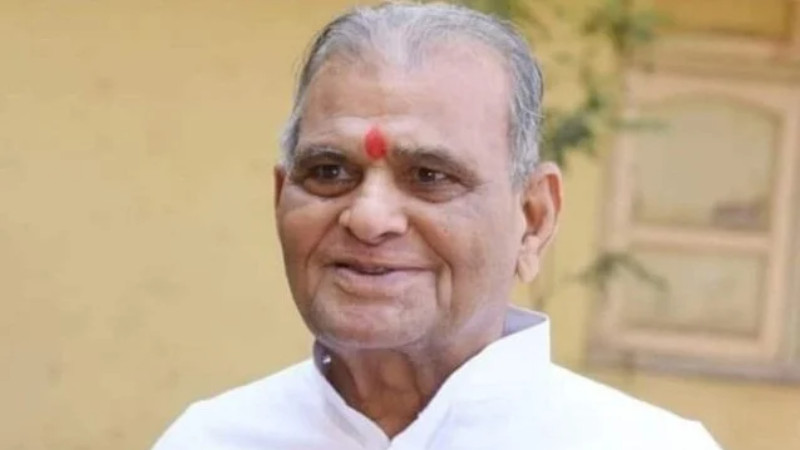
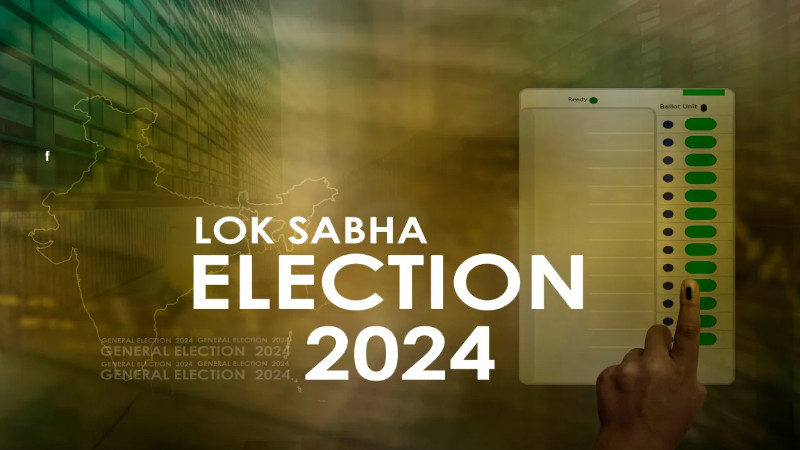
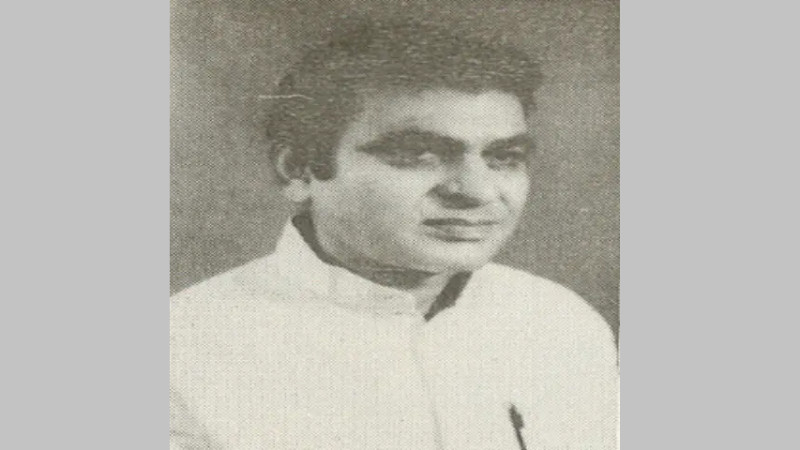
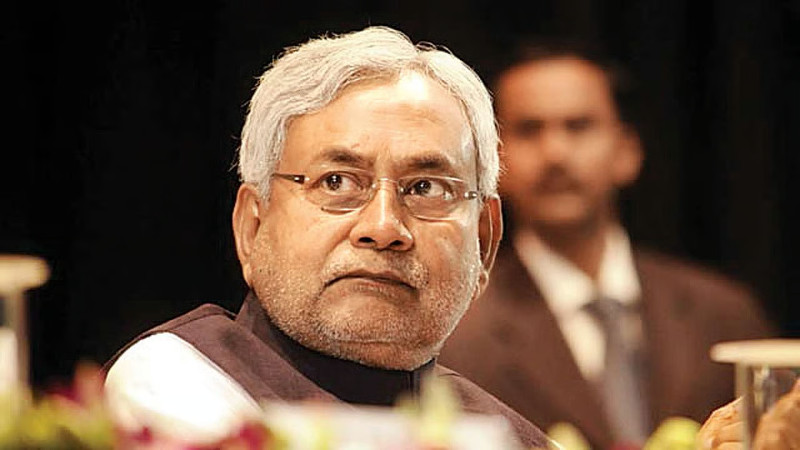

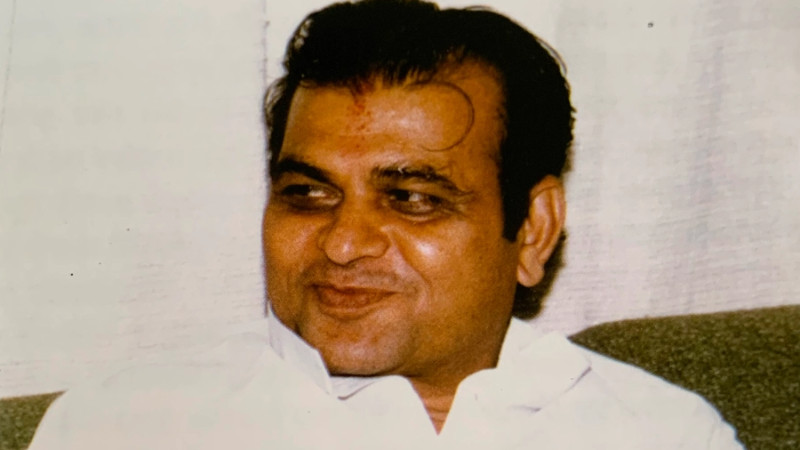

























Add Comment